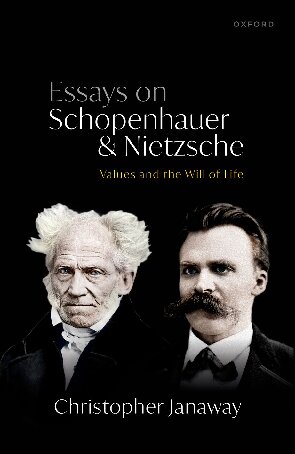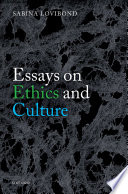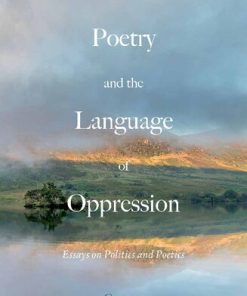Essays on Schopenhauer and Nietzsche Values and the Will of Life 1st edition by Christopher Janaway 0192635026 9780192635020
$50.00 Original price was: $50.00.$25.00Current price is: $25.00.
Essays on Schopenhauer and Nietzsche: Values and the Will of Life 1st edition by Christopher Janaway – Ebook PDF Instant Download/DeliveryISBN: 0192635026, 9780192635020
Full download Essays on Schopenhauer and Nietzsche: Values and the Will of Life 1st edition after payment.

Product details:
ISBN-10 : 0192635026
ISBN-13 : 9780192635020
Author : Christopher Janaway
This book brings together fourteen essays by Christopher Janaway on the philosophy of Schopenhauer and Nietzsche. They illuminate central philosophical issues in the work of these thinkers – the death of God, the meaning of existence, suffering, compassion, the will, Christian values, the affirmation or negation of life. Some of the essays concern Schopenhauer in his own right, focusing on his concept of will to life, an underlying drive which constitutes our inner essence, but which traps us in self-centred desire, a wrong identification of our true self with the human individual, an egoistic conception of the good, conflict with other beings, and an existence pervaded by suffering. Opposed to the will to life stands everything of real value: art, morality, and the kind of redemption from suffering recognized by mystics from several of the world’s religions. Other essays discuss Nietzsche’s critical responses to Schopenhauer, and his own challenging views on related topics. For Nietzsche, morality is a questionable phenomenon and egoism is wrongly maligned; suffering is an enhancement of life, and the attempt to eliminate it is impoverishing; art is full, not drained, of willing; the world religions and the whole idea of being saved from our life are symptoms of a malaise from which modern culture has somehow to recover. The book also features discussions of the reception of Schopenhauer by two contemporaries of Nietzsche, Richard Wagner and the analyst of pessimism, Olga Plümacher.
Essays on Schopenhauer and Nietzsche: Values and the Will of Life 1st Table of contents:
Part I. Schopenhauer on the Will
1. The Real Essence of Human Beings: Schopenhauer and the Unconscious Will
1. Introduction
2. Schopenhauer in the History of the Unconscious
3. Awakened Out of Unconsciousness
4. Will as Real Essence
5. Will and Intellect
6. Sexual Will
7. Escaping the Will
2. Necessity, Responsibility, and Character: Schopenhauer on Freedom of the Will
1. Introduction
2. The Case against Free Will
3. Doers of Our Deeds
4. The Intelligible Character: Schopenhauer and Kant
5. Why the Intelligible Character?
6. The Problem of Individuality
3. Schopenhauer on the Aimlessness of the Will
1. Introduction
2. Desire as Aimless
3. Acts of Will Have Aims
4. ‘The Will’ as Aimless
5. An End to Willing
6. Some Difficulties
7. Conclusion
4. What’s So Good about Negation of the Will? Schopenhauer and the Problem of the summum bonum
1. Introduction
2. Negation of the Will to Life
3. No Highest Good
4. Moral Goodness and Transcendent Value
5. Two Kinds of Value?
6. A Different Kind of Willing
7. Summary
8. Some Difficulties
Part II. Schopenhauer: Being, Not Being, and the Individual
5. Beyond the Individual: Schopenhauer, Wagner, and the Value of Love
1. Introduction
2. Pure Love
3. Sexual Love
4. Wagner’s ‘Schopenhauerian’ Love Story
5. Disturbing Diagnosis and Redeeming Remedy
6. Conclusion
6. Schopenhauer’s Consoling View of Death
1. Introduction
2. Why Not Make Life Briefer?
3. Epicurean Arguments
4. Continued Existence
5. ‘I, I, I, Want Existence’
6. Conclusion
7. Worse than the Best Possible Pessimism? Olga Plümacher’s Critique of Schopenhauer
1. Introduction
2. Schopenhauer and Weltschmerz
3. Philosophical Pessimism
4. Plümacher’s Defence of Pessimism
5. Hartmann’s Combination of Pessimism and Optimism
6. Conclusion
Part III. Nietzsche Responds to Schopenhauer
8. Schopenhauer’s Christian Perspectives
1. Introduction
2. The Ungodliness of Existence
3. The ‘True Core’ of Christianity
4. Moral Meaning versus the ‘antichrist’
5. Salvation and the Word ‘God’
6. Sin and Grace
7. Conclusion: Nietzsche’s Verdict
9. On the Very Idea of ‘Justifying Suffering’
1. Introduction
2. Questions about Theodicy and Justification
3. Schopenhauer and the Meaning of Existence
4. The Birth of Tragedy: Provocative Formula and Anti-moral Tendency
5. Suffering Not Bad in Itself
6. Conclusion
10. Affect and Cognition in Schopenhauer and Nietzsche
1. Introduction
2. Schopenhauer: Cognition Naturally Influenced by Affects
3. Pure Cognition
4. Nietzsche: No Affect-Free Knowing
5. Perspectivism, Affects, and Nietzsche’s Cognitive Enterprise
6. Conclusion
Part IV. NietzscheSuffering, Affirmation, and Art
11. Beauty is False, Truth Ugly: Nietzsche on Art and Life
1. Art, Insight, and Illusion
2. Truth and Illusion in Apollonian Art
3. Tragic Art and Truth
4. Art, Truth, and Socratism
5. Art and Truth in the Later Nietzsche
6. Unease about the Nature and Value of Truth
12. Attitudes to Suffering: Parfit and Nietzsche
1. Introduction
2. Agreeing and Disagreeing about the Value of Suffering
3. The Case for Nietzsche’s Not Disagreeing
4. Growth through Suffering
5. Bad Parts of Good Wholes
6. Nietzsche Genuinely Disagrees
7. Conclusion
13. Nietzsche on Morality, Drives, and Human Greatness
1. A Formula for Human Greatness
2. The Highest Human Being: Internal Conditions
3. Greatness and Self-Affirmation
4. Unity, Agency, and Chance
5. Morality as Symptom and Danger
14. Who—or What—Says Yes to Life?
1. Introduction
2. ‘Saying Yes’: Subjects and Objects
3. How Does Affirmation Occur?
4. Naïve and Reflective Affirmation
5. Culturally Acquired Instincts
6. Inside and Outside
7. ‘Ach!’
8. Conclusion
People also search for Essays on Schopenhauer and Nietzsche: Values and the Will of Life 1st:
essays and aphorisms schopenhauer pdf
essays and aphorisms schopenhauer
essays and aphorisms pdf
essays and aphorisms arthur schopenhauer pdf
schopenhauer essays and aphorisms pdf
Tags:
Essays,Schopenhauer,Nietzsche,Values,the Will of Life,Christopher Janaway
You may also like…
Biography & Autobiography - Essays
Politics & Philosophy - General & Miscellaneous Philosophy
Politics & Philosophy - Politics
Nietzsche and the Politics of Reaction: Essays on Liberalism, Socialism, and Aristocratic Radicalism
Politics & Philosophy - Anthropology
Poetry - American Poetry
Poetry and the Language of Oppression: Essays on Politics and Poetics
Politics & Philosophy - Anthropology
Knowledge and Conditionals: Essays on the Structure of Inquiry 1st Edition Robert C Stalnaker
Uncategorized
Politics & Philosophy - Anthropology
Politics & Philosophy - Social Sciences












